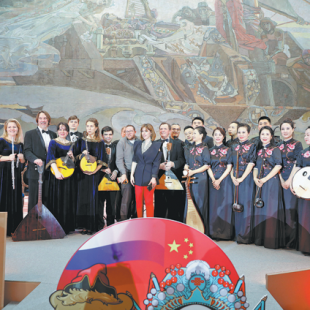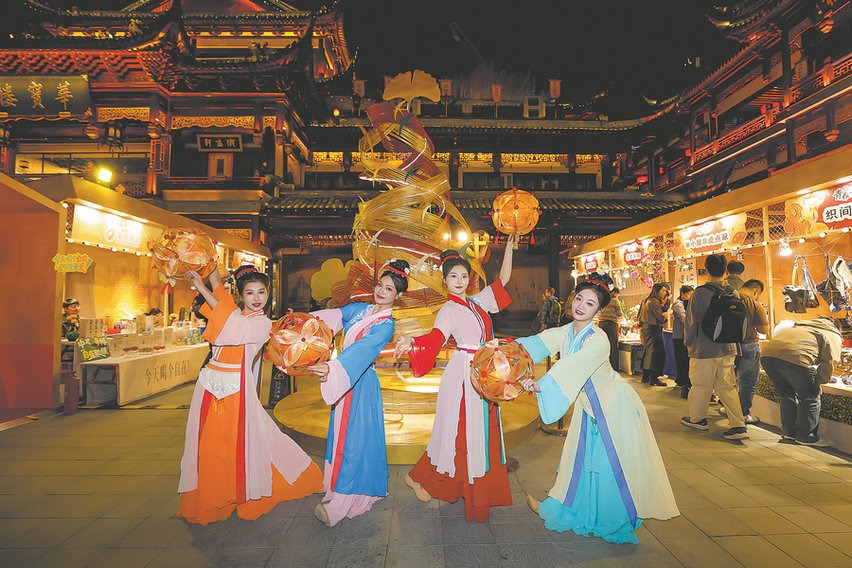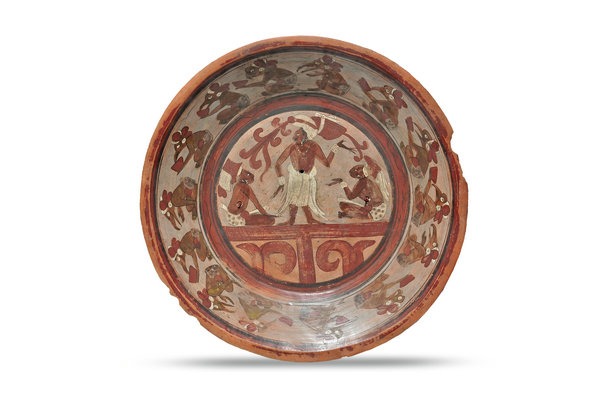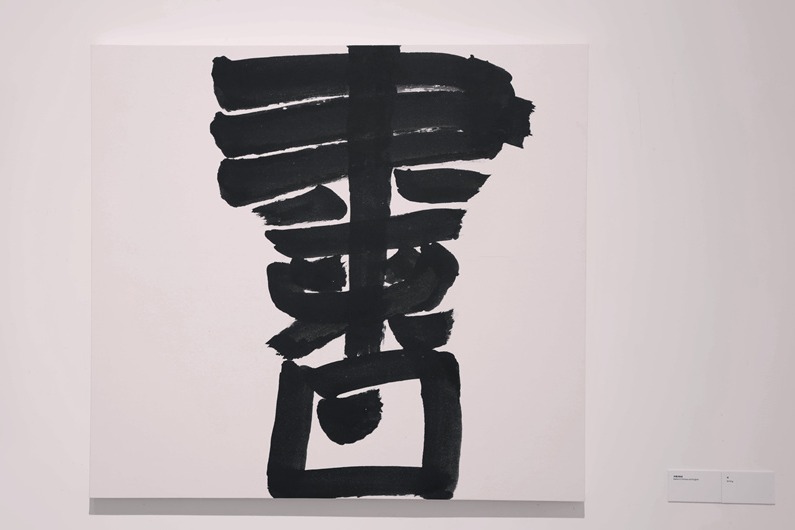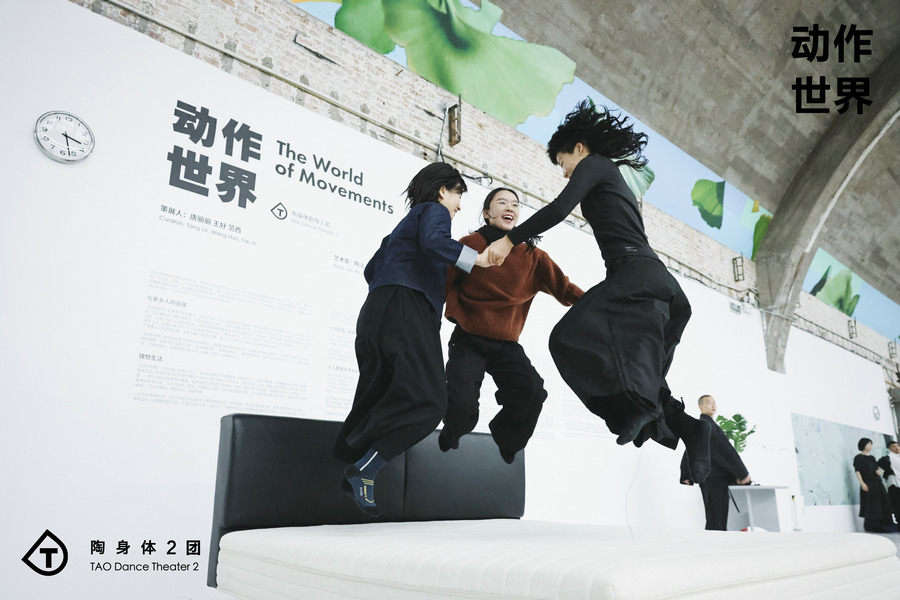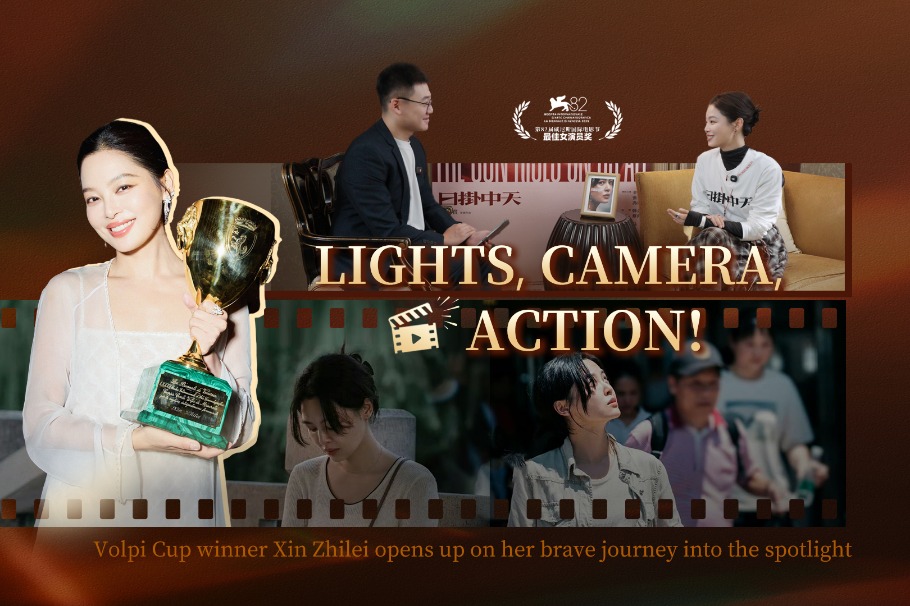China, Russia conclude artistic event with vibrant showcase


MOSCOW — Against the backdrop of the balalaika and pipa melodies at the State Tretyakov Gallery in Moscow, the 2024-25 China-Russia Years of Culture concluded with a graceful finale, highlighting the growing cultural ties between the two nations.
The yearlong program featured more than 400 cultural events in both countries, "vividly showcasing the depth and vitality of our cultural cooperation", said Zhanna Alexeyeva, Russia's state secretary and deputy minister of culture, at the closing ceremony on Nov 17.
In early 2025, Moscow hosted the "Chinese New Year in Moscow" festival in Manezhnaya Square, followed by China-themed events at two dozen venues across the capital. Attendance reached about 1.5 million, doubling last year's number. In addition, a Chinese New Year-themed metro train marked the Spring Festival celebrations.
Joint concerts, exhibitions and youth programs further strengthened mutual understanding. Chinese and Russian orchestras performed classical works from both nations to enthusiastic audience responses.
"We hope to see more Chinese and Russian ensembles onstage and performing for wider audiences," said Luan Dong, head of the Chinese Orchestra at the China National Opera and Dance Drama Theater.
Film cooperation also surged. The coproduced movie Red Silk, shot in both countries, was released in Russia in February and in China in September. It resonated strongly with viewers and helped strengthen cultural bonds.
The 2025 China Film Festival was held in major Russian cities, including Moscow, St. Petersburg and Kazan, while the 2025 Russia Film Festival took place in Beijing and two other Chinese provincial capitals — Xining, Qinghai province, and Lanzhou, Gansu province.
A series of joint exhibitions and performances marked the closing events of the cultural year.
An art exhibition titled From Beijing to Moscow: A Dialogue of Cultures opened at the State Tretyakov Gallery on Nov 17. Visitors wandered through the halls to view 14th- to 19th-century Chinese paintings and calligraphy of the National Museum of China.
Earlier this year, the National Museum of China launched Ilya Repin: Encyclopedia of Russian Life, an exhibition offering Chinese audiences a rich introduction to Russian artistic traditions and social history, further enriching cultural dialogue.
Zheng Yan, curator of both exhibitions, said the shows aimed to deepen mutual understanding and help people in both nations gain a better understanding of each other's culture.

Exchanges between stage artists were equally remarkable.
In April, the Chinese original dance drama Wing Chun was staged at Moscow's Bolshoi Theatre. Its melding of Chinese kung fu and dance earned prolonged applause from Russian audiences.
Russia's BRICS TV reported that Wing Chun moved the audience with its dynamic rhythm and sensitive emotional expression. "Through this work, Russian viewers gained a deeper understanding of Wing Chun, a school of traditional Chinese martial arts with unique charm," it said.
Meanwhile, a selection of classic Russian works has been staged in China: ballets such as Swan Lake, Sleeping Beauty, and The Nutcracker have brought authentic "Russian-style aesthetics" to Chinese audiences. Stage productions adapted from literary classics like Anna Karenina and War and Peace have offered fresh and engaging theatrical experiences.
Wang Ning, president of China's National Centre for the Performing Arts, noted that the arrival of many high-caliber Russian art troupes in China not only shares the essence of Russian culture with Chinese audiences, but also enables Russian performers to experience China firsthand.
Alexander Ryzhinskii, rector of the Gnesin Russian Academy of Music, said both countries boast a long history and brilliant culture. Artistic exchanges, through visual and auditory experiences, deepen mutual understanding and draw the two peoples closer.
"Cultural exchanges help bridge the distance between people's hearts, and cultural cooperation serves as the foundation of mutual understanding," said 90-year-old Galina Kulikova, first deputy chairperson of the Russia-China Friendship Association.


